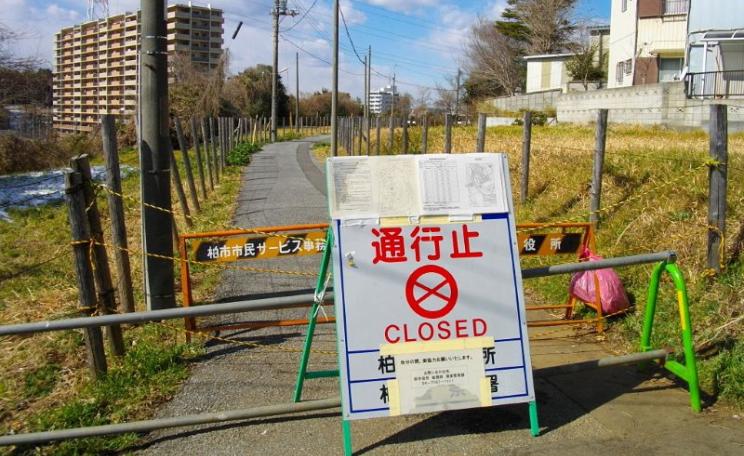If these changes go through the rule of law will be undermined, and with it, most citizens' ability to use the law to protect the environment from irreparable harm. Access to the courts will be restricted to those who can pay for the privilege.
Does the government diminish the rule of law by introducing complex court procedures and removing costs protection for citizens who want to bring judicial review proceedings in the public interest?
And would such conduct be justifiable, when it deters citizens from using the courts to challenge the government's own unlawful behaviour?
These are questions environmental lawyers are asking themselves, as we wait for the Ministry of Justice (MOJ) to publish its long awaited proposals following its consultation on environmental court costs last December. We still do not know when to expect the Government's response.
The changes follow statutory and other proposed rule changes, that all combine to make it more difficult for citizens to bring court proceedings, particularly environmental challenges.
Environmental cases fall into a particular class of case, as they are brought in the public interest. In such cases, a claimant asserts not their own financial interest but a general interest which, if they win, will be furthered.
Only by empowering citizens to fight for clean air, water and a healthy planet, can these interests be protected, because the environment is unable to speak for itself.
If the government fails to fulfil its duties, it is only citizens who can make sure they do so eventually - by using the courts. This kind of redress is at the heart of a mature democracy
UK is already in breach of Aarhus Convention obligations
The UK acknowledged the importance of citizens being able to bring environmental challenges when it signed, in 1998, the Aarhus Convention on Access to Environmental Justice. The government is therefore under an international obligation to reduce the barriers to citizens bringing environmental claims.
In particular, the UK must ensure that its court procedures in environmental cases are not prohibitively expensive, and it must also offer claimants certainty in relation to their liability to potential costs, before they bring the claim.
Despite this longstanding obligation, the Aarhus Compliance Committee found in 2010 that legal costs in the UK were prohibitively expensive. The UK remains in non-compliance despite the implementation of fixed costs caps in 2013.
Nevertheless, the current cost capping rules are simple to understand and easy to apply. A claimant who wishes to bring a judicial review claim knows in advance that their liability for the public authority's costs, if the claim is unsuccessful, won't be more than £5,000 for an individual, or £10,000 for an not-for-profit organisation like ClientEarth.
If these changes go through the rule of law will be undermined, and with it, most citizens' ability to use the law to protect the environment from irreparable harm. Access to the courts will be restricted to those who can pay for the privilege.
No claimant brings such a challenge lightly, because they must also meet their own legal team's costs and court fees of over £700. Even if the claim is successful, the claimant will often still be out of pocket because the maximum costs that can be recovered from the public authority is £35,000. A complex environmental judicial review would incur costs far in excess of this sum.
Now the government wants to lift the costs cap
In its consultation, the MOJ proposes a number of changes to the environmental costs rules. This includes removal of the certainty of standard cost caps.
First, much higher cost caps are proposed, exposing those bringing legal actions to far more financial risk: £10,000 for an individual and £20,000 for a group of citizens bringing a case. It also reduces the maximum costs recovery to £25,000 for public authorities.
Second, even these cost caps, set at double the current level, would not be fixed. Instead a 'hybrid' model is proposed: "in every case where the regime applied, the costs caps would - at least initially - be set at a default level, but any party could make an application for the court to vary their own - or another party's - costs cap.
"The court would also be able to vary the caps of its own motion. In varying the caps, the court would be able to increase or decrease them and, in appropriate cases, remove a cap altogether."
This means that the present certainty which a claimant has in relation to potential costs liability, when deciding whether or not to bring or pursue a claim, may be removed altogether at any point in the proceedings at the judge's discretion.
In addition, the MOJ has recently confirmed its decision to require claimants to provide the name and address of any third party funder who provides financial support of £3,000 or more towards the costs of the litigation.
Given the potential costs of a court case, and the fact that just providing financial support for a claim does not make you liable for any costs the claimant may incur, such a provision seems disproportionate and designed to deter potential funders from supporting litigation brought against the Government.
Theresa May, reject these disgraceful proposals!
If the proposed changes are introduced, the UK will be choosing to exacerbate its longstanding non-compliance of the Aarhus Convention, in the knowledge that they will make it more difficult for most of its citizens and non-governmental organisations to challenge its unlawful decisions.
That could mean ClientEarth would be unable to bring a legal challenge like our clean air case, currently due to return to court in October.
As a result, wrongful decisions are likely to go unchallenged because citizens will be prevented from having access to the courts and the protection they offer from the unlawful actions of the Government.
Without the means to bring such conduct before an impartial judge, the rule of law will be undermined, and with it, most citizens' ability to use the law to protect the environment from irreparable harm. Access to the courts will be restricted to those who can personally afford to pay for the privilege.
The government's proposals to amend the costs capping rules for Aarhus claims, not only run contrary to the UK's Convention obligations, they also appear to be designed, intentionally, to make it more difficult for claimants to protect the environment and to create a 'chilling' effect in order to deter claims.
The new administration still has time to consider the implications of these damaging proposals, and their impact on the UK's reputation as a state that respects its international obligations and the rule of law.
If it chooses to proceed with the proposals not only will the rule of law be diminished, but so will we, and the environment we all need and share.
Gillian Lobo is public law and climate litigation lawyer at ClientEarth. Before joining ClientEarth she worked for the Treasury Solicitor's Department, where she undertook a mix of work, including claims in negligence, human rights and inquests into the deaths of British soldiers whilst on operations.







